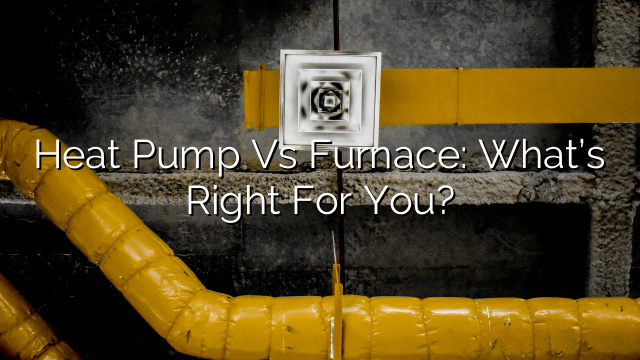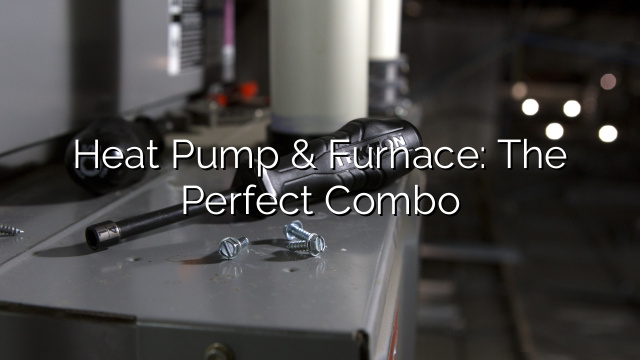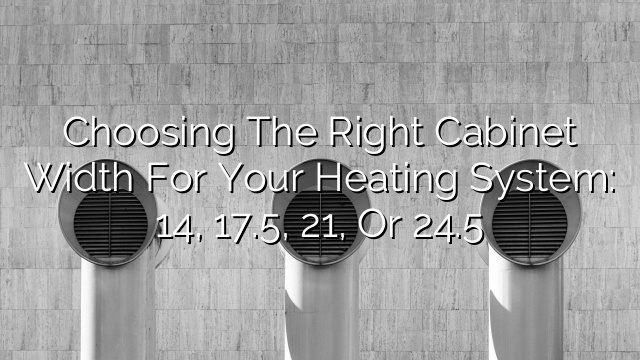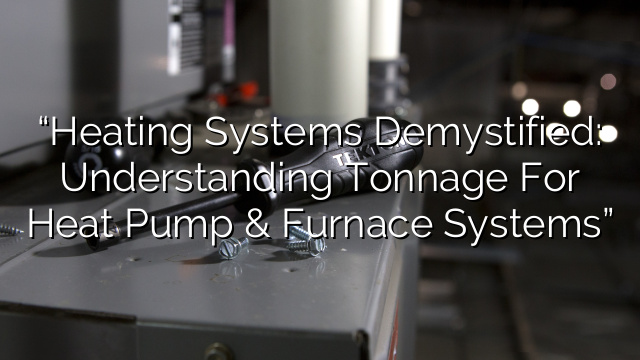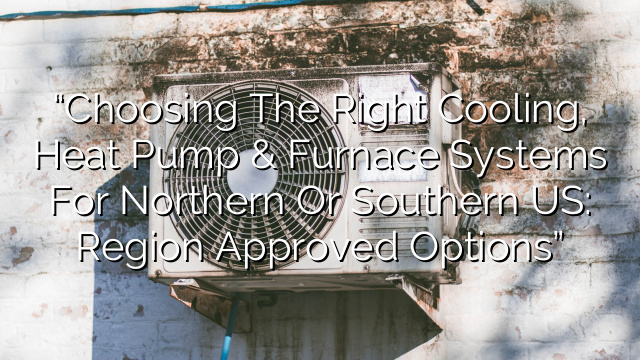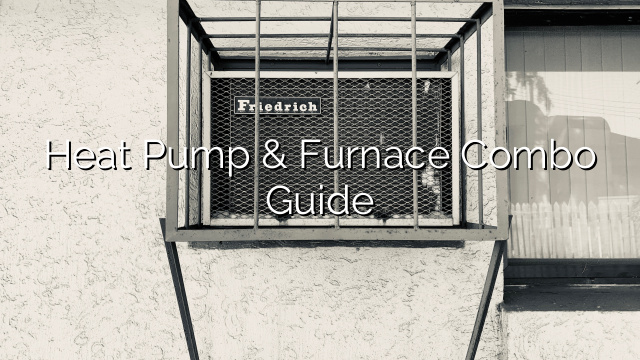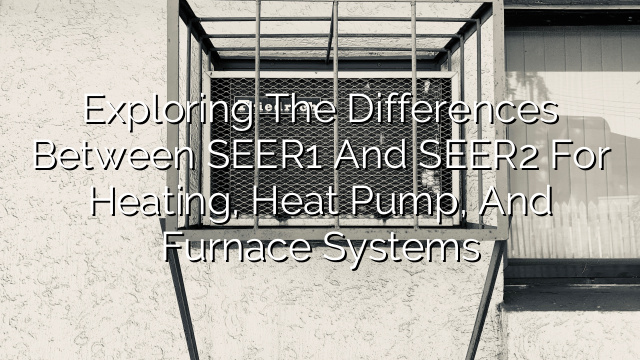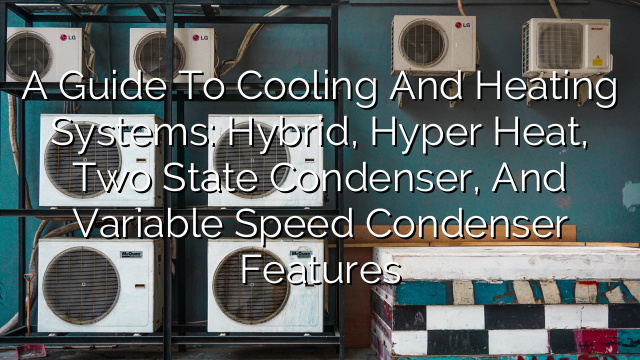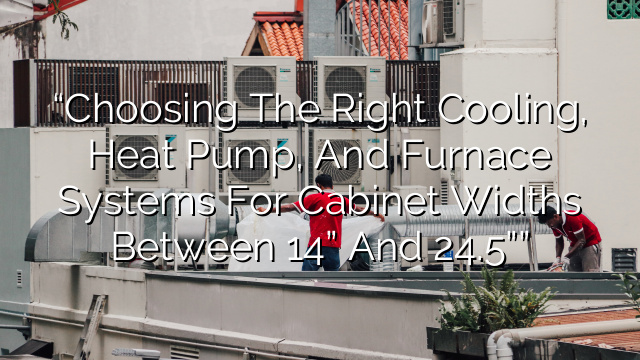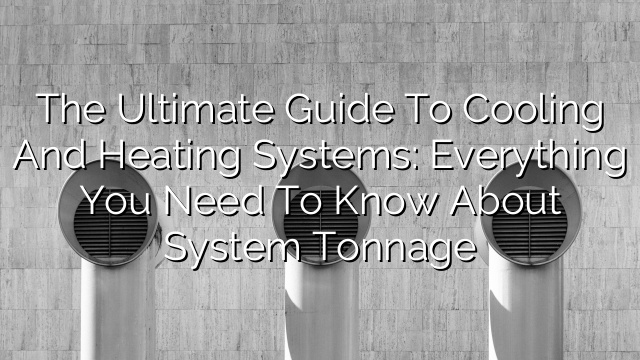Introduction
When it comes to heating your home, there are two main options to choose from: a heat pump or a furnace. Both are effective at providing warmth, but they operate in different ways and have their own unique advantages and disadvantages. In this article, we will compare heat pumps and furnaces to help you determine which is the right choice for your home.
What is a Heat Pump?
A heat pump is a device that can both heat and cool your home. It works by transferring heat from one place to another using a refrigerant. In the winter, the heat pump takes heat from the outdoor air and transfers it inside your home, warming it up. In the summer, it does the opposite, taking heat from inside your home and transferring it outside, cooling your home.
What is a Furnace?
A furnace, on the other hand, is a heating system that generates heat by burning fuel, such as natural gas or propane. This heat is then distributed throughout your home via ductwork and vents. Furnaces are usually installed in a basement, attic, or dedicated mechanical room.
Efficiency
One of the main factors to consider when choosing between a heat pump and a furnace is efficiency. Heat pumps are known for their high efficiency, as they don’t actually generate heat; they simply transfer it. This means that for every unit of energy used, a heat pump can produce more heat than a traditional furnace.
However, it’s important to note that the efficiency of a heat pump can vary depending on the temperature outside. As the temperature drops, the heat pump may need to work harder to extract heat from the air, resulting in reduced efficiency. In extremely cold climates, a backup heating source may be required to supplement the heat pump.
Furnaces, on the other hand, are typically less efficient than heat pumps. While modern furnaces have become more energy efficient over the years, they still need to burn fuel to generate heat. This combustion process results in some heat loss and can contribute to higher energy bills.
Cost
Cost is another important factor to consider when choosing between a heat pump and a furnace. Heat pumps tend to have higher upfront costs compared to furnaces. The cost of a heat pump system includes the unit itself, any necessary ductwork modifications, and installation.
However, heat pumps can help you save on energy costs in the long run, as they are highly efficient. In fact, the energy savings from a heat pump can often offset the initial investment within a few years. Additionally, heat pumps may qualify for rebates and incentives, further reducing the cost.
Furnaces, on the other hand, tend to have lower upfront costs compared to heat pumps. The cost of a furnace system includes the unit itself, ductwork, and installation. However, because furnaces are less efficient, they can result in higher energy bills over time.
Lifespan and Maintenance
The lifespan of a heat pump is typically longer compared to a furnace. Heat pumps can last anywhere from 15 to 20 years, while furnaces typically have a lifespan of 12 to 15 years. Regular maintenance is important for both heat pumps and furnaces to ensure optimal performance and extend their lifespan.
Heat pumps require regular maintenance, such as cleaning or replacing air filters, ensuring proper airflow, and checking refrigerant levels. Furnaces, on the other hand, require regular maintenance, such as cleaning or replacing air filters, inspecting and cleaning the burner, and checking for any carbon monoxide leaks.
Climate Considerations
Another important factor to consider when choosing between a heat pump and a furnace is your climate. Heat pumps are most effective in moderate climates where temperatures don’t regularly drop below freezing. In these climates, heat pumps can efficiently extract heat from the outdoor air. However, in colder climates, heat pumps may struggle to provide sufficient heat, especially during extreme cold spells.
Furnaces, on the other hand, can provide consistent and reliable heat even in extremely cold climates. They are more suitable for areas with long, cold winters and where temperatures regularly drop below freezing. In these climates, a furnace with a high AFUE (Annual Fuel Utilization Efficiency) rating can help keep your home warm and comfortable.
Conclusion
Choosing between a heat pump and a furnace ultimately depends on your specific needs and preferences. If you live in a moderate climate and prioritize energy efficiency, a heat pump may be the right choice for you. However, if you live in a colder climate and need reliable heat even in extreme temperatures

